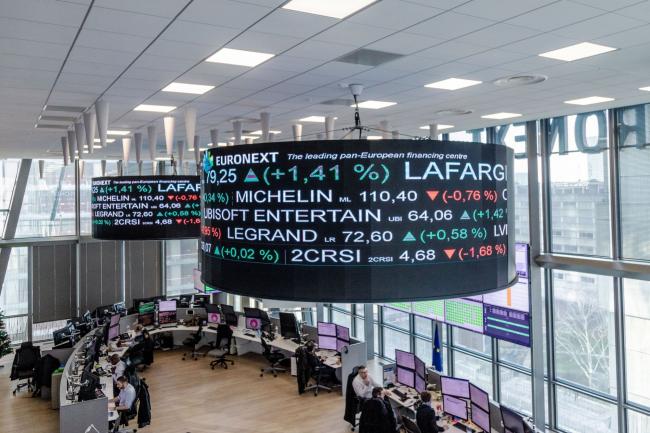(Bloomberg) -- Companies, the biggest source of demand for stocks in recent years, are likely to sharply cut back their purchases for years to come, preventing equities from reaching pre-coronavirus crisis valuations, according to Sanford C. Bernstein.
Diminished revenues, reduced capacity to issue high-yield debt for the purpose of buying stock and government curbs on companies taking public aid will all cause buybacks to shrink, according to the research firm and wealth manager. Buybacks could even become “socially unacceptable,” though the firm judged it too early to make a forecast on that count.
“For at least several years buybacks will be severely curtailed,” analysts including Inigo Fraser-Jenkins, who once did financial-stability research at the Bank of England, wrote in an April 6 note.
The dynamic is especially meaningful for the U.S., the Bernstein team wrote. Over the past five years, buybacks added about 1 to 1.5 percentage points to earnings-per-share growth, bolstering American stocks, the analysts estimated.
A more decisive economic role for governments -- which have moved decisively across the globe to prop up both the financial system and companies of all types -- will also likely have an impact on equities, Fraser-Jenkins and his colleagues wrote.
“As governments take a larger role in economies, this could turn the tide away from shareholders-first views of economies for some time,” they wrote. “Government’s role in financial markets cannot just be packed back into the box once this is all over.”
It’s possible that debt burdens could even go beyond the levels seen in World War II, depending on future additional rounds of fiscal stimulus, according to Bernstein. Along with the risk of faster inflation over time -- in part thanks to de-globalization -- that makes government bonds less attractive as a hedge to stocks, the analysts wrote.
“The absence of risk-free instruments that can deliver positive real return and at least a risk of higher inflation further bolster the case for gold,” on which the analysts have been positive for more than a year.
©2020 Bloomberg L.P.

